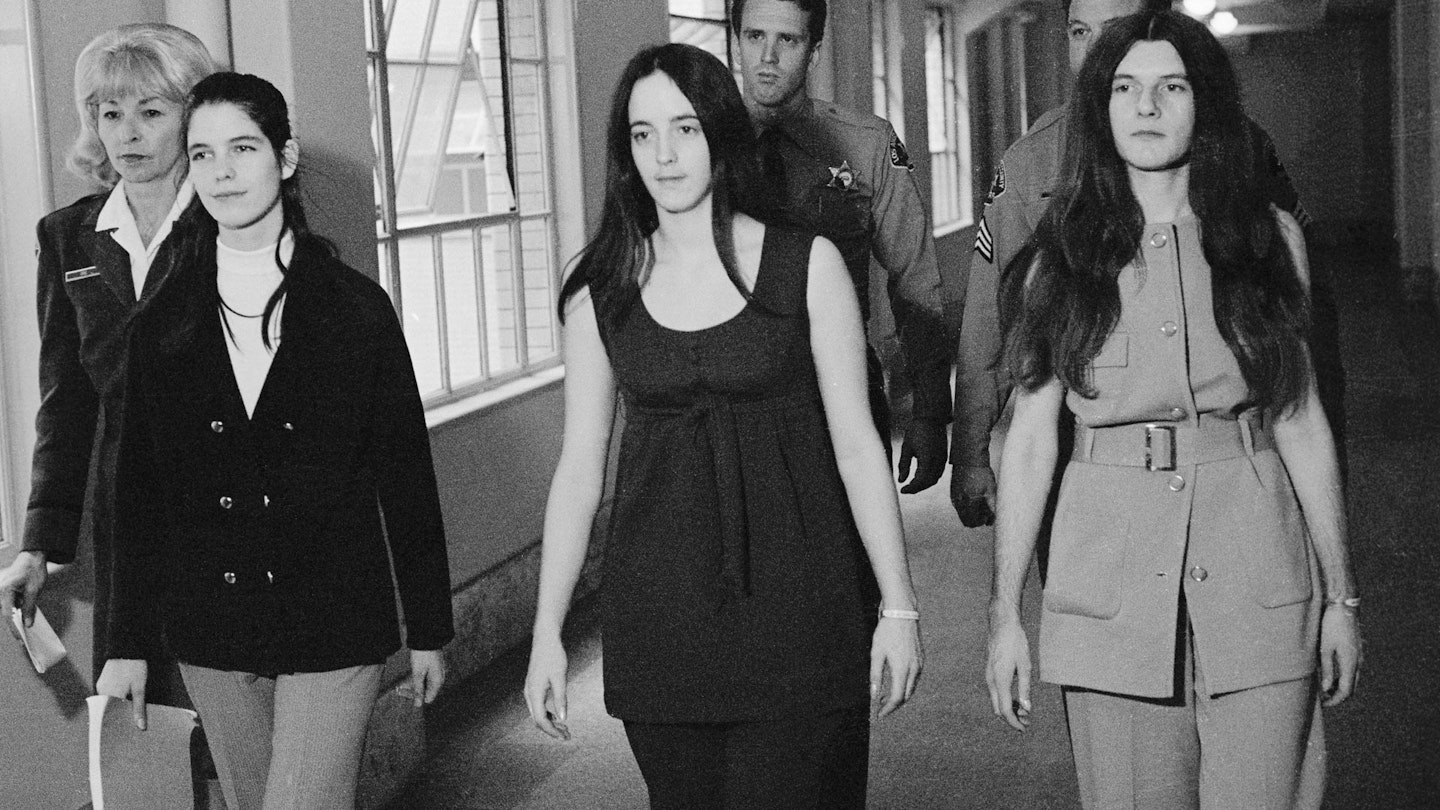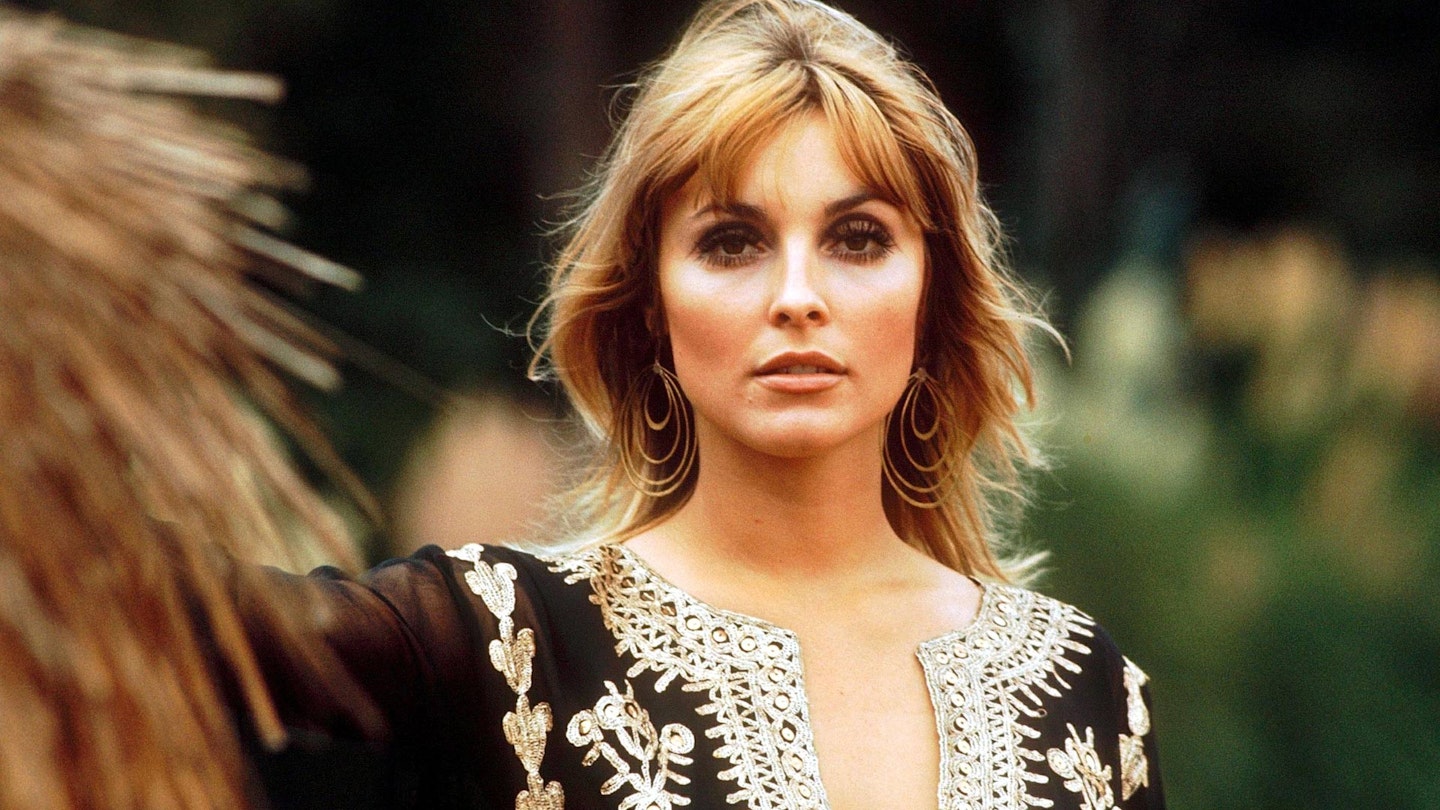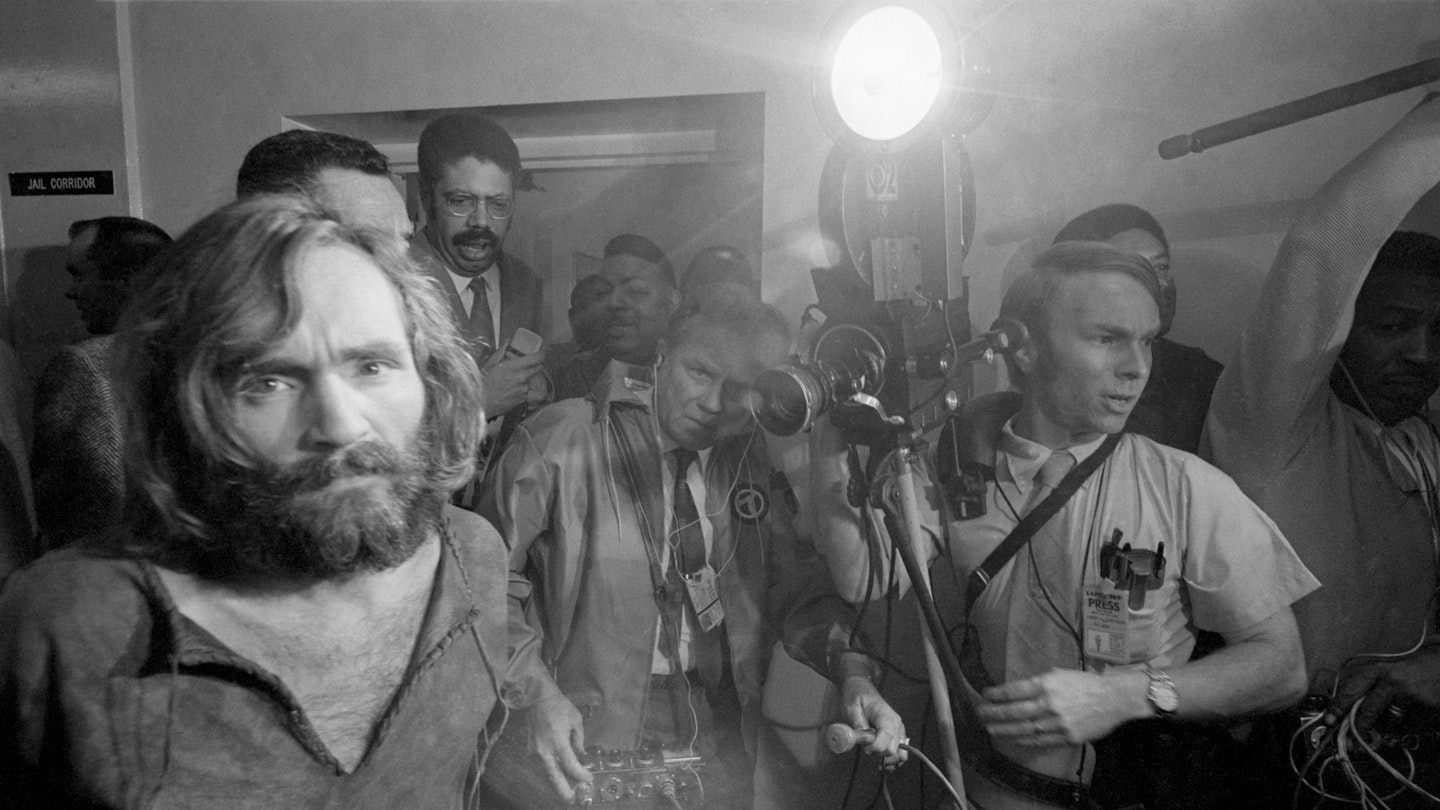In the next twelve months alone, there will be at least a trio of new films ‘inspired’ by infamous cult leader and mass killer Charles Manson. The most noteworthy is perhaps violence porn purveyor Quentin Tarantino’s* Once Upon A Time In Hollywood*, which announced today that it has cast Brad Pitt and Leonardo DiCaprio as failed actors living next door to Sharon Tate, with Margot Robbie or Jennifer Lawrence reportedly being considered for that role. Next there’s Charlie Says, which will focus on the Manson girls and how they rehabilitated themselves in prison, with Marianne Rendon, Odessa Young and Hannah Murray as acolytes Susan Atkins, Patricia Krenwinkel and Leslie Van Houten, and Matt Smith as Manson. There’s also an indie film called The Haunting Of Sharon Tate, featuring Hilary Duff as the murdered actress. Suffice to say at this point Charles Manson films are becoming a sub-genre of their own.
The details of the Manson case are so well-known it is almost unnecessary to rehash them here. On 9th August 1969, the body of heavily pregnant actress Sharon Tate and her unborn child were found at the Cielo Drive mansion she shared with director Roman Polanski, along with those of Abigail Ann Folger, Wojciech Frykowski, Steven Earl Parent and Jay Sebring. The next night, married couple Leno and Rosemary LaBianca were found similarly slain in their home, with ‘death to pigs’ written in blood on the wall. After several weeks of Los Angeles being on high alert, the unlikely killers were identified: a trio of young women, aged between 19 and 21 years old, who had been incited to kill at the behest of a 35-year-old man – lifetime criminal, master manipulator and cult leader, Charles Manson. Living in squalid conditions on an old Western movie lot dubbed Spahn Ranch, he had managed to use a heady combination of ‘free love’, LSD and lessons learnt from both pimps and Dale Carnegie’s How To Win Friends And Influence People to put them under his spell. Then, he brainwashed them into killing for him to incite a prophesised race war, as predicted by the Beatles’ song Helter Skelter. If you’re thinking all of this sounds like the convoluted plot of a box office thriller, then you’ve probably also just grasped why Manson makes for such easy cinema screen fodder. Yet theatrics-aside, why this continued interest in events from almost 50 years ago?

One reason is the unusualness of the case. After all, Manson has the distinction of being the only mass killer of the 20th century who wasn’t present at his crimes. As Adam Lynes, senior lecturer in criminology at Birmingham City University explains: ‘It’s important to note here that a mass killer is typically defined as an individual who murders four or more people in one location and in one event with no cooling off period. Not only did Manson not return to a seemingly “normal” life in between these murders, but he also used others in the commission of these crimes – two very striking deviations from those serial killers he is so often compared with. I believe this may assist in understanding why the Manson murders continue to fascinate.’
His ability to convince his followers, who were very young women, to commit these heinous crimes for him, is another source of continued fascination. As Lynes says: ‘How did he gain these followers? Why did women in particular seem drawn to him? What was it about him that made others follow his commands to kill others? These are questions that are still being asked and debated to this day.’ Zoe James, associate professor of criminology at Plymouth University thinks that this is part of the reason that we enjoy watching Charles Manson films, explaining that: ‘This creates a terrifying paradox for the observer wherein they are torn between their belief that they would never carry out such acts, but they also recognise the attractiveness of Manson himself.’
Another unique aspect of the Manson case is of course the celebrity connection. In his desperation to become famous Manson had immersed himself in Hollywood, with links to Dorris Day (her son Tony Melcher owned the house on Cielo Drive), the Beach Boys (Dennis Wilson was a one-time fan of Manson’s music and a friend), and even the Beatles (who Manson claimed were sending the Family coded messages through songs, most notably Helter Skelter), while his victims were high profile, including most famously Sharon Tate. Lynes believes this link is important for differentiating the case from others, saying: ‘Most serial killers tend to target those individuals who are most vulnerable and marginalised in society. Manson, on the other hand, targeted high profile individuals – not the typical victims of murder. This is another important reason as to why the Manson murders have continued to endure in the public’s consciousness.’

If all of this explains Manson’s enduring fascination, what is it about the present moment that has spawned this flurry of films? While his death last November can be attributed to some of the interest, most of the projects were already in the works prior to that, so is it perhaps tied to the political climate of 2018 as well? Manson’s ability to use language to play on the insecurities of some of the weakest people in society certainly sounds familiar, while his far-right leaning attitudes are also becoming more common place again today. Indeed, in the most recent series of American Horror Story: Cult, the right-wing fanatic and Trump supporter played by Evan Peters is visited by the spirit of Charles Manson, who urges him to do his bidding. As Lynes argues: ‘As we witness the rise of more far-right wing attitudes and sentiments across the western world, Manson, with a swastika etched onto his forehead in many images of him, is perhaps even more interesting and relevant than before.’
‘Society has become more divided and people hasten to blame others that they don’t understand for society’s ills rather than who are guilty of any wrongdoing,’ adds James. ‘The Manson case is an example of what can happen when people place their faith in the wrong people or place blame in the wrong hands. It certainly resonates with some of the issues we face in society today.’
Yet with his death last year, is there an end in sight for this Manson-mania? Perhaps not, as Lynes prophesises: ‘While it is difficult to determine if this fascination with Manson will ever end, as long as there is mainstream media including newspapers, books, TV shows and films that continue to report on and portray his life and crimes, this fascination will likely continue.’ In this way, we’ve given Manson what he always wanted: to be famous.
